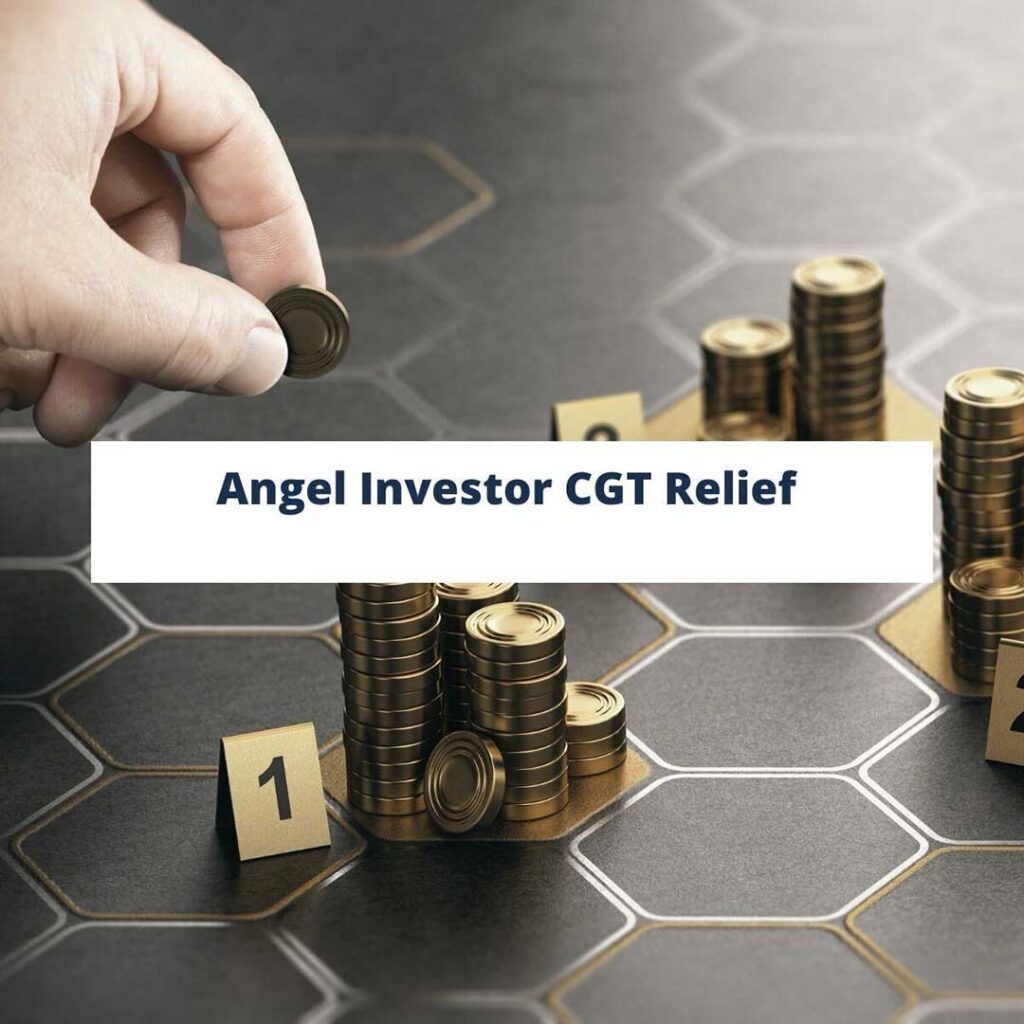The New Angel Investor CGT Relief in Ireland: A Game-Changer for Startup Investment

What is Capital Gains Tax (CGT) and Why Does This Relief Matter?
Capital Gains Tax (CGT) applies when you sell an asset (such as shares) for a profit. In Ireland, the usual rate is 33%—meaning one-third of your profit goes to tax.
This new relief, however, allows angel investors to pay just 16% CGT on qualifying gains, provided certain conditions are met. That’s a 17% tax saving, making startup investments significantly more rewarding.
This move is expected to encourage more private investors to fund Irish startups, helping innovative businesses grow while providing better after-tax returns for investors.
Who Can Qualify for This Relief? (Investor Criteria)
Not all investors can claim this tax break—it’s designed for genuine angel investors rather than existing business owners or insiders. Here’s what you need to qualify:
- You must be an individual investor – Companies cannot avail of the relief.
- Investment must be at least €20,000 – However, if your investment gives you a 5% stake or more, the minimum required drops to €10,000.
- You must not be connected to the company – Founders, employees, and family members cannot claim the relief.
- You can invest via a partnership – The same tax rules apply, but the CGT rate increases slightly to 18%.
The goal here is to encourage fresh capital from third-party investors rather than benefiting those already involved in the company.
What Types of Investments Qualify? (Eligible Shares & Conditions)
Not all shares will qualify for this CGT relief. The key conditions are:
- You must buy newly issued shares – The company must be issuing fresh shares to raise capital.
- Investment must be in cash – You can’t invest via a loan conversion or receive shares as payment.
- You must hold the shares for at least 3 years – Selling before this period means you lose the tax benefit.
- Shares must be ordinary equity – No preference shares, guaranteed dividends, or secured investments allowed.
This ensures that investors are taking a real risk on the company’s success.
Which Companies Qualify for Angel Investment Relief?
Not every startup is eligible. The relief is targeted at high-growth, innovative SMEs that meet the following criteria:
- The company must be an SME – It must have fewer than 250 employees and a turnover of €50 million or less.
- The company must be innovative – It needs a Certificate of Commercial Innovation from Enterprise Ireland or another approved body.
- The company must be a going concern – It cannot be in financial distress or liquidation.
- The funds must be used for growth – The investment should help the company scale, not just cover existing debts.
This focus on innovation ensures that the relief supports businesses that drive real economic progress.
How the CGT Relief Works in Practice
Here’s how the tax break applies when you sell your shares:
- Reduced CGT Rate – Instead of 33%, you’ll pay just 16% (or 18% for partnerships).
- Cap on Qualifying Gains – The lower tax rate applies to twice your original investment. For example, if you invest €100,000, the reduced CGT applies to the first €200,000 of profit.
- Lifetime Cap – Investors can apply the relief on up to €10 million in total gains over their lifetime.
This ensures the relief is generous enough to encourage multiple investments while maintaining a fair tax structure.
Holding Period & Conditions for Claiming the Relief
To claim the tax benefit, investors must:
- Hold shares for at least 3 years – Selling earlier means losing the relief.
- Sell shares to a third party – The tax break doesn’t apply if you sell the shares back to the company or to a family member.
- Maintain eligibility – If the company loses its Certificate of Innovation before you sell, the relief could be revoked.
How Does This Compare to Other Irish CGT Reliefs?
There are other tax incentives in Ireland, but this one stands out:
- Entrepreneur Relief – Only applies to business owners selling their own company and taxes gains at 10%.
- Retirement Relief – Available only to business owners over 55 years old.
- Employment Investment Incentive (EII) – Offers income tax relief on investments, rather than CGT benefits.
This new Angel Investor CGT Relief fills a gap, providing an incentive specifically for external investors in startups.
How to Apply for the Relief (Investors & Companies)
Both investors and companies need to follow a few steps:
- Companies must apply for qualification– They must secure the Certificate of Commercial Innovation and a Certificate of Going Concern from Revenue.
- Investors must check company eligibility – Before investing, confirm that the company has the necessary certificates.
- Claim the relief when filing CGT returns – Investors will declare their gain and apply the reduced 16% rate.
- Keep documentation – Revenue may request proof of investment, holding period, and company qualification.
Contact us today to schedule a consultation with one of our expert tax consultants in Cork. Let us help you navigate the complexities of the tax system and achieve your financial goals.
This article is intended for informational purposes only and should not be considered a replacement for professional advice. The author(s) disclaim any liability for actions taken or not taken based on the content of this document. It is recommended to seek tailored advice before making any decisions related to the topics discussed in this article.

